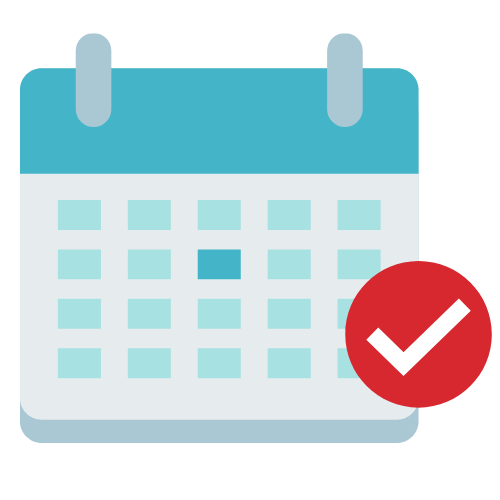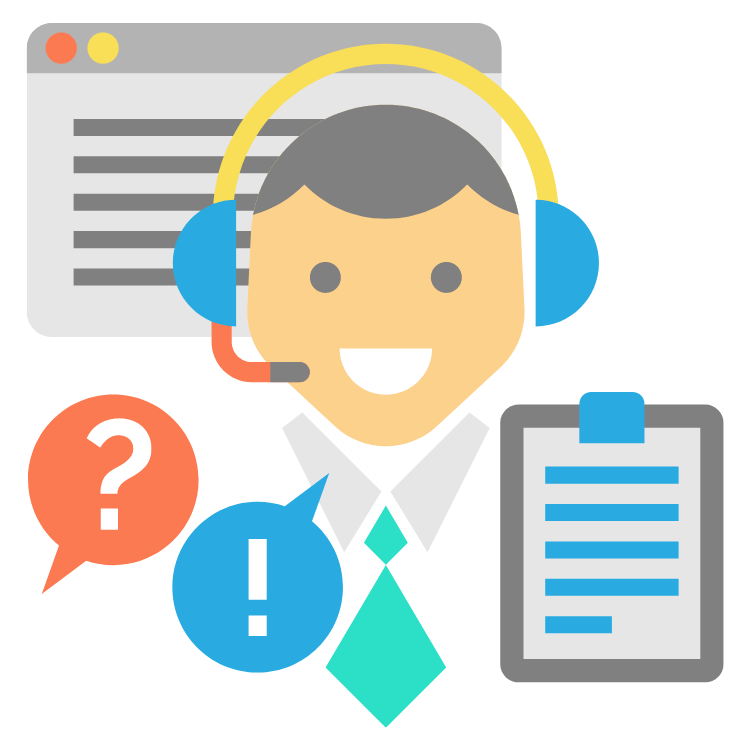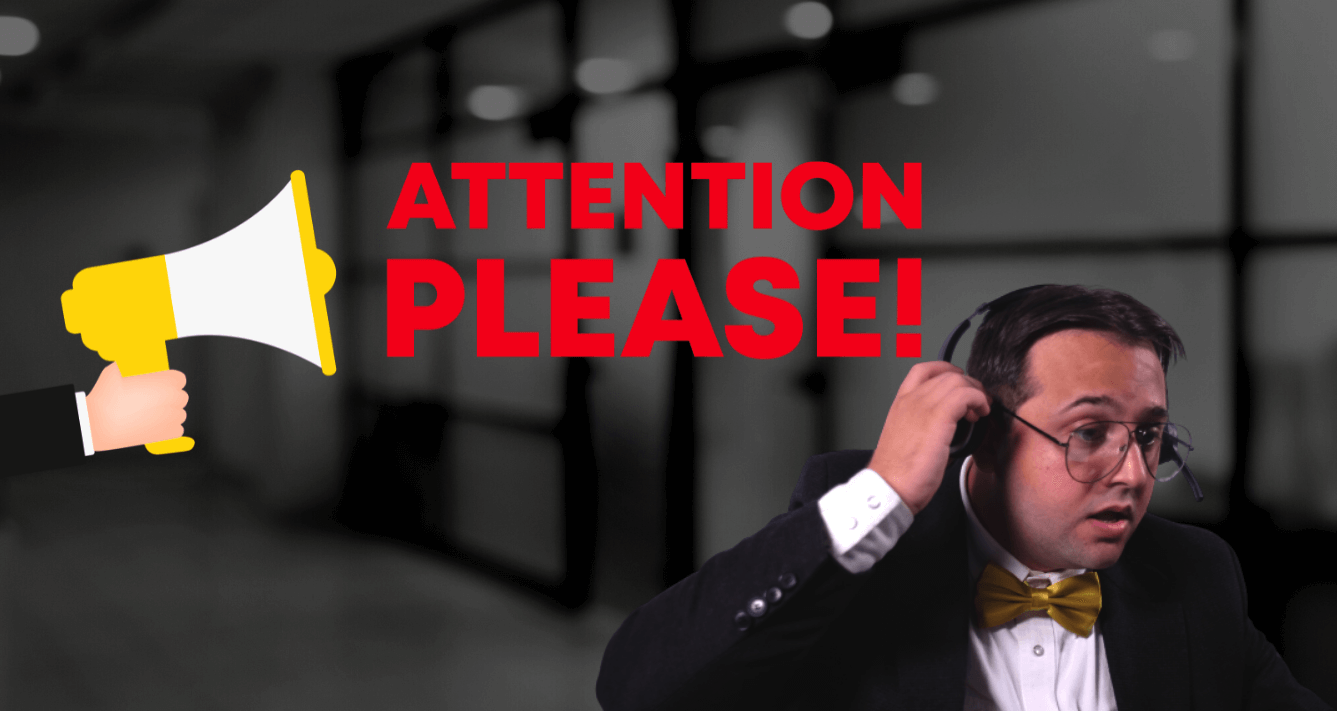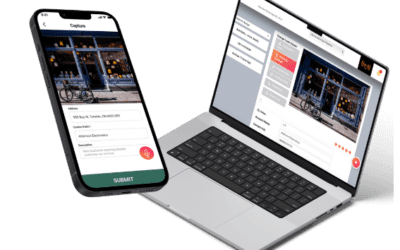Ready to get started?
As a salesperson, follow-up calls are your number one way to land your sales deals. But they can seem daunting sometimes, or even disheartening if the prospect you’re trying to call doesn’t answer the phone. The way you handle these calls is the secret to your success in sales and in business as a whole.
Having a solid strategy in place for your follow-up calls will not only separate you from the pack, but with the following techniques, it will also make your prospects remember you. And being remembered amongst all the other sales reps your prospect is getting calls from is one of the most important things you can do to land that sale.
Companies are receiving dozens of cold and follow-up calls a day. So what can you do to ensure that you’re the one they remember? What tactics can you employ that will make your prospects want to answer your call, rather than just letting you go to voicemail over, and over again? Read on to find the answers to all of your questions and adhere to these follow-up call tips to help you close those deals.
Get a Commitment and Schedule the Follow Up Call
This sounds like a no-brainer, but it’s more than just making a vague, “I’ll call you sometime next week,” statement. If you want to close the deal, you need to get a commitment for follow-up from your prospect and schedule the next call. Never end a conversation with an indefinite promise to call at some point in the future.
“All right, Jason, I’d be happy to send you an email with the quote we’ve just discussed, and in the meantime, how about we take a look at our calendars to see what day would work best for both of us to review the quote and decide what steps, if any, we should take next? Wednesday, the 21st at 4:15 PM works for me, how about you?”
If that date and time doesn’t work for your prospect, suggest another. If the second suggestion also doesn’t work for them, have them commit to a date and time that’s convenient for them.
The Best Days And Times For Follow Up Calls
It may seem unnecessary, but there are actually proven dates and times that are the best for making follow-up calls. A survey, conducted by CallHippo showed that the best days of the week to call your prospects are Tuesdays, Wednesdays, and Thursdays. Wednesday is the best overall day of the week to land a sale during a follow-up call. The difference between the number of prospects that answered follow-up calls on Wednesdays compared to Mondays is 50%! The latter half of Fridays was found to be the worst time to call your prospects, as they’ve likely hit weekend mode by this point, and don’t have the brain capacity to deal with yet another sales call.

The same survey by CallHippo found that there is actually the best time of day to make or schedule your calls. If you want to land those sales, try and schedule your follow-up calls between 4:00 pm and 5:00 pm, with the second-best interval being between 11:00 AM and 12:00 PM. The reason for this is that many companies, especially those internationally, work between the hours of 7:00 AM and 7:00 PM. In the morning, they’re getting in and getting things ready for their day ahead. They’re not in the mindset to discuss business deals. Lunch hours typically range between 1:00 PM and 3:00 PM. Prospects are not answering your sales calls when they’re thinking about lunch.

Send an Email Prior to the Follow Up Call
On the day before you’re scheduled to have a follow-up call, send your prospective client a reminder email. In the subject line, write something along the lines of, “Telephone appointment for Wednesday, December 21st.” This way, even if your recipient doesn’t open the email, they’ll be reminded of tomorrow’s call simply by reading the subject line.
The body of the email should be short and to the point, but you can also add in an article you think they may be interested in reading. This will get you remembered. The article can be something related to your business or theirs, a product, the market as a whole. It can also be something non-business-related that the two of you talked about during your last discussion. If your prospect mentioned enjoying a round of golf every now and then, link a related article about the sport. Your email can look something like this:
“Good afternoon, Jason. How are you? Our call tomorrow should only take about 10 minutes. We’ll go over the [proposal/quote/product/etc.], and I’ll answer any questions you may have. After that, we can determine what our next steps will be, if necessary. By the way, I came across this interesting article the other day about a new golf course opening up. I thought it might interest you.”
This may seem trivial to you, but it will actually endear you to your prospect. It’ll let them know that you were listening when they were speaking, and not just calculating your next sale.
Your potential client will remember that you went that extra mile for them. This will make them want to attend your follow-up call even more.
Always Be Prepared
With Google and Social Media ever-present, there is no excuse to go into a call unprepared. A good salesperson doesn’t know just about the product you’re pushing or the company you work for. A good salesperson knows just as much about the company they’re trying to engage with.
Google your prospect and their company. Check out their social media pages. Learn everything you can about them and their company so that you’re not walking into this call knowing little to nothing about them. Doing the prep work before the call will not only boost your own confidence going into it but also the confidence of your potential client. Companies don’t want to buy products from you if you’re bumbling through the call just trying to get to the sales pitch.

Ask the Right Questions
Before going into your follow-up call, make a list of some questions you’d like to ask. This follows along with the previous tip of always being prepared, but it also helps if you have a difficult time asking meaningful questions. Prospective clients will take note of the questions you ask, and the ones you don’t.
Steering clear of simple yes or no questions is a good rule of thumb. For example, instead of asking, “Do you consider X to be a pain point at your company?” Consider, “How do you and your company feel about X?”
Erin Myers from OutboundEngine suggests avoiding the following “pitfalls” when asking questions to your potential clients:
- Avoid leading the witness. Don’t end your questions with, “right?”
- This isn’t a school test. No multiple-choice questions. “Has your company done this? Or this? Or that?”
- Do not ramble! “Have you done this? It’s very important that you do this, right? We had a client once who didn’t do this…”
Learning to ask meaningful, effective questions is an important aspect of closing deals in your follow-up calls. As is ensuring that you don’t interrupt them while they’re answering. Learning to stay quiet is of great value.
Ask Follow Up Questions
The art of asking questions isn’t just for leading questions, it’s also about the follow-up. Asking your clients follow-up questions to the answers they’ve already given you lets them know that you’ve been listening and paying attention. They can also help you guide the conversation if you find that your client has started to ramble or veer off-topic. Don’t interrupt them while they’re speaking, but don’t be afraid to ask for clarification either.
For further clarification, you can also repeat their answers in their own words. Just as the woman at the McDonald’s drive-thru repeats your order to ensure it’s correct, you, too, can repeat your prospect’s answers. On longer calls, things can be misunderstood or misinterpreted, especially if your client has a habit of going off-topic. So repeating what they’ve said can help with any potential misunderstandings.

Also, be sure to keep the conversation as balanced as possible. Don’t be the only one talking, but don’t let your client sit with dead air. Staying silent will make them think you aren’t paying attention, but steamrolling the conversation will make them less likely to work with you. Balance is key in a follow-up call.
Pay Attention!
It’s imperative that you pay attention to the things your prospect is saying. This way you can ask follow-up questions, or send out targeted links in your emails, as mentioned above. You want your prospective clients to know that you’re listening to them, but also that you’re hearing them. These can be two different things.
If they’re speaking vaguely about a pain point, or beating around the bush, read between those lines. This way, you can suggest ways to fix their problems without them having to come right out and say them. Some clients are uncomfortable being open about their pains. That’s where you come in. As long as you were paying attention, that is.
Pay attention to the way they’re sounding on the phone as well. If you’re in the middle of a long monologue and you hear them yawning, it may be time to cut your speech short and ask a question. This will get them re-engaged in your call. No one wants to listen to a five-minute monologue, no matter how interested they may be in your product. So picking up on vocal or non-vocal clues is key to a successful follow-up call.
Make a Good Impression
Your potential customer has probably received a number of calls for similar products already this month. If you want them to go with your company and your product, you have to make a good impression. Let them know that they’re not just money signs to you.
Beginning a follow-up call by asking your prospect how they are or how they’ve been increases your likelihood of a sale, says Meg Prater at HubSpot. In fact, says Meg, “Asking ‘How have you been?’ increases success rates by 6.6X.” Being polite, kind, and courteous will always make a great impression, both at work and in everyday life.
Be Persistent (But Don’t Be Annoying)
Fortune favors the brave, but fortune also favors the follow up. And that’s not just a cliche. In fact, according to Krish Ramineni, co-founder of and CEO at Fireflies.ai, 80% of successful business deals will require five follow-up calls to close your deal.
That may seem like a lot, but persistence can help win over a potential client who was teetering on the fence. If despite all your other efforts, your prospect still doesn’t answer your call at your scheduled time, it’s okay. Simply leave them a message stating your name and company, and that you were calling for your scheduled appointment.
“Hi, Jason. This is John Smith from XYZ Computing calling for our 4:15 appointment. I’m sorry if my call found you tied up. I’ll try you again in 10 minutes, or you can call me back at —. Thank you!”

If 10 minutes go by and you still haven’t heard from them, call again. If they don’t answer a second time, leave another message explaining that you’re following up on your appointment. Don’t put the blame on them for not answering, just say that you understand if today isn’t a good day after all, and please call you back at their earliest convenience.
If you haven’t heard from them before the end of the day, you can call once more. Or wait three days and call again. If, after your fifth call, they still haven’t answered or returned your call, it’s time to give up.

Be Remembered
This is another simple thing that you can do that will keep you at the forefront of your potential clients’ thoughts. After your follow-up call, send them a thank you card! Not an impersonal email, but an actual pen and paper thank you card.
“Jason, I just wanted to thank you for taking the time out of your busy schedule to talk to me last Wednesday. I look forward to working with/for you in the future. Best, John Smith.”
Quick, easy, powerful. How many of your competitors are doing that? Likely, not very many. That’s why it’s a small, simple way of putting in some extra effort that will show your clients why your company is the one they should work with.
How we do it at Wingmate…
Subscribe For More
Other Articles
Enhancing customer satisfaction with a mobile CRM App
Ready to get started?Are you looking for a way to enhance customer satisfaction in your sales process? Mobile CRM (Customer Relationship Management) apps are the perfect tool to help sales reps stay on top of their customer interactions and keep track of customer...
Lead Management Process
Ready to get started?The lead management process is an important part of any business. It is a method that bridges the gap between marketing and sales which increases the chances of turning prospects into customers and ultimately results in more revenue for your...






